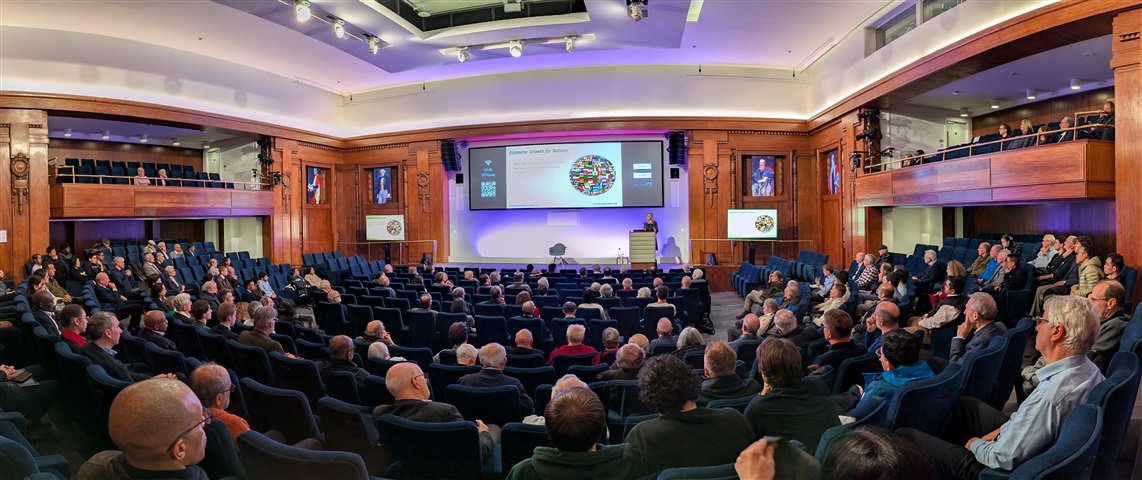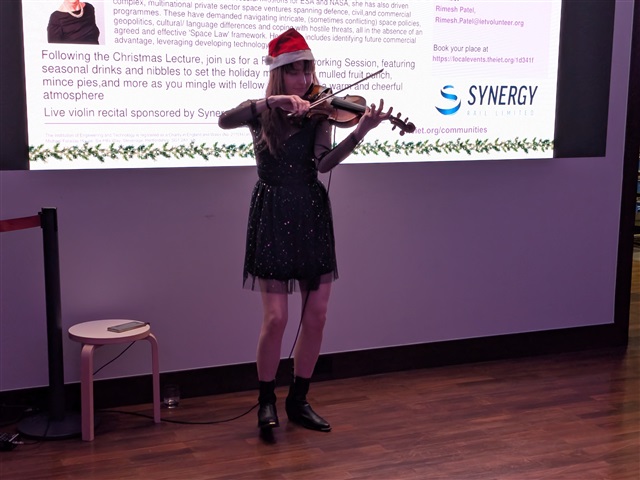If you had a spare couple of £Billion to spend on space, what would you spend it on?
At the IET Central London Network Evening Lectures we always end with a Q&A session with our guest speaker, and this was a question posed to Julie Holt-Jones, Co-Founder/Executive Director of Space4Sight, at the end end of the her lecture on the "Space Economy - Tomorrow's World Today?"
Our Christmas Lectures are usually well attended, and this was no exception. Julie entertained a packed Kelvin Lecture Theatre with a short history of Space, from Sputnik and Yuri Gagarin through an anecdote about the Swiss flag being planted on the moon by the Apollo 11 mission to the present day and the International Space Station.

The Space economy is forecast to reach $1.8 Trillion by 2035 with growth at an average of 9% per annum. New players are entering the market daily and the awareness of the benefits of Space and data is growing. Many sectors now depend on Space, from banking and financial transactions, through communications to environmental monitoring. Interruption to timing signals from Space would result in an estimated loss to the UK economy of £1 Billion per day.
The UK is a founding member of the European Space Agency and the 4th largest contributor. We [the UK] are taking the lead in the Rosalind Franklin mission to Mars in 2028. These activities bring with them a unique set of challenges, and Julie spent some time outlining the impact of geopolitics on Space activities.
Which brings us back to the question posed at the top of this blog post. During her lecture Julie had identified three hazards to Space vehicles:
There are currently over 22,000 items of Space Debris larger than 10cm in size. An item the size of a pinhead travelling through space at a velocity of 6-7 Km per second has the potential to create enormous damage to a vehicle in orbit. These collisons can cascade, a scenario known as the Kessler Syndrome, with the potential to knock out Satellites and perhaps Space Stations. To illustrate the point Julie had a physical example of such damage to show the audience. AI is being used to work out how to move Satellites around debris, but there is a need for a proper plan for disposal of this debris and currently there is a lack of global agreement.
Julie would spend her spare £Billions on Space Debris Collection as this enables everything else that follows.
To round off the evening we had a Networking Event with some festive entertainment:

Let me know in the comments below and please follow the Central London Network on X (Twitter) and Facebook.
Watch the Lecture on IET TV here:
Did you know that Savoy place has a 24/7 webcam? https://www.theiet.org/about/our-venues/iet-london-savoy-place-webcam